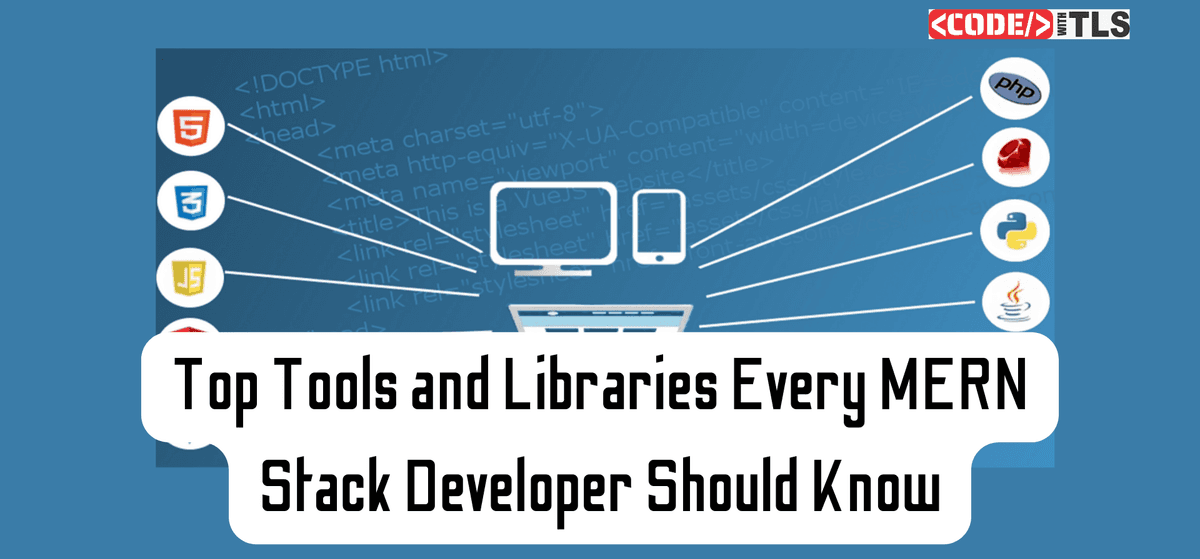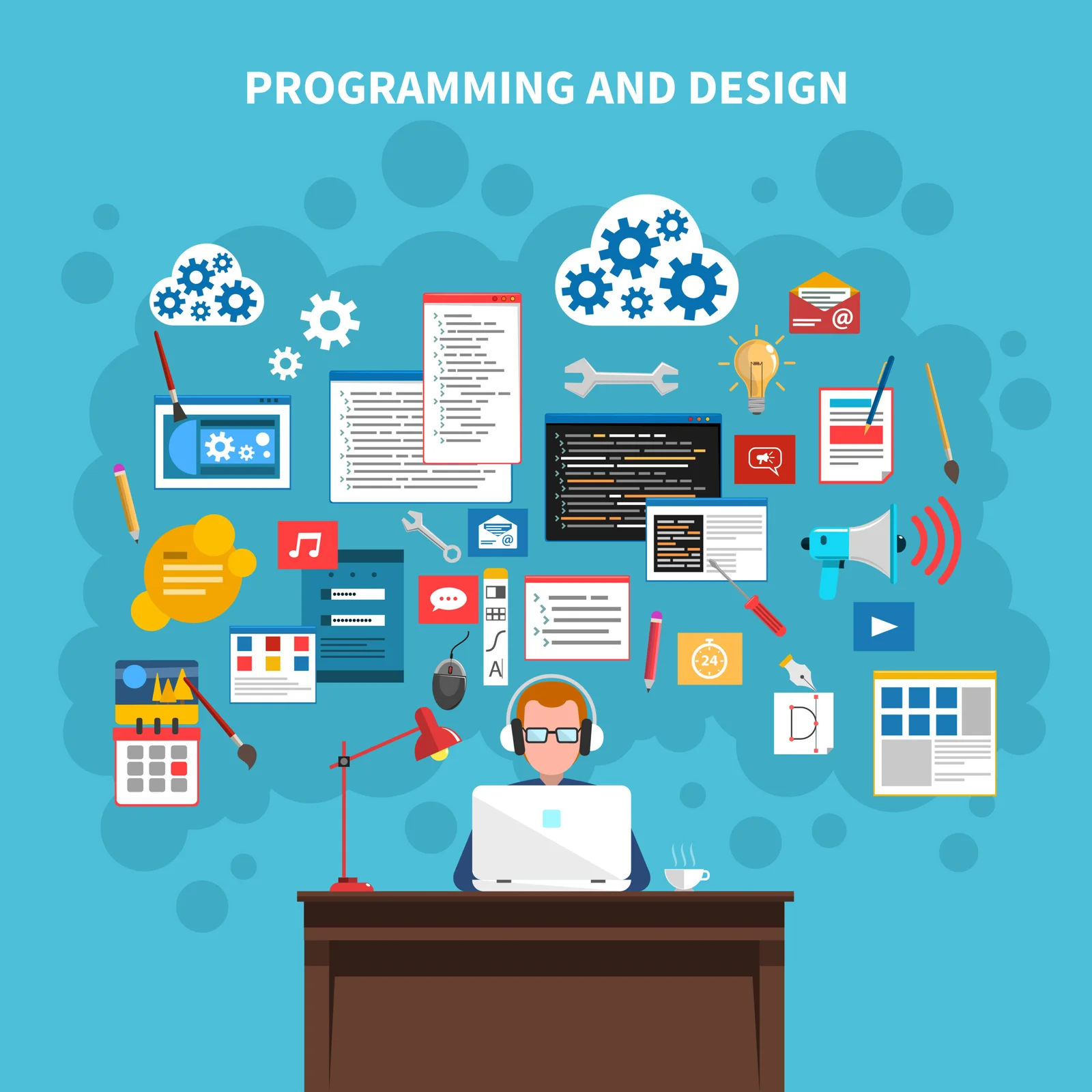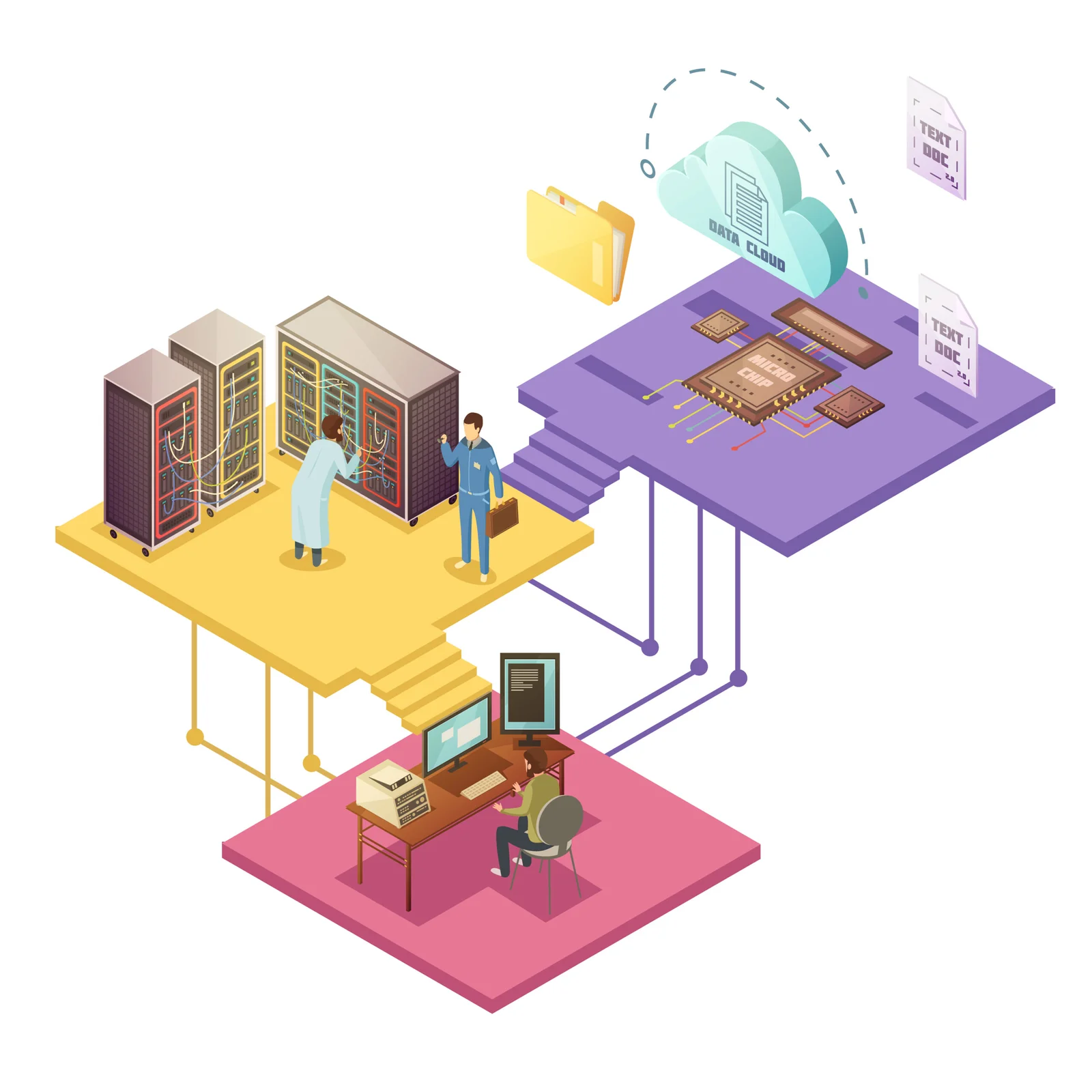

Top Tools and Libraries Every MERN Stack Developer Should Know
Published: 2025-01-15 10:24:12
The MERN stack, which stands for MongoDB, Express.js, React, and Node.js, is one of the most popular frameworks for building modern web applications. Its versatility and efficiency make it a preferred choice for developers across the globe. However, mastering the MERN stack requires not only a solid understanding of its core components but also familiarity with the essential tools and libraries that enhance productivity and streamline development processes. This article explores the top tools and Libraries for MERN Stack Developer to ensure seamless development and deployment of web applications.
Core Libraries for MERN Stack Developer
Before diving into auxiliary tools, let’s revisit the fundamental libraries that make up the MERN stack:
1. MongoDB
MongoDB is a NoSQL database that stores data in JSON-like documents. Its schema-less nature makes it highly flexible and ideal for modern applications. It’s a critical component for storing and retrieving data efficiently.
2. Express.js
Express.js is a minimalist web framework for Node.js, providing robust features for building APIs and web applications. It simplifies handling HTTP requests, routing, and middleware integration.
3. React
React, maintained by Meta, is a JavaScript library for building interactive user interfaces. Its component-based architecture and virtual DOM make it highly efficient for rendering dynamic views.
4. Node.js
Node.js is a runtime environment that allows developers to execute JavaScript code on the server side. It’s lightweight, efficient, and excellent for building scalable network applications.
These four components are indispensable. However, leveraging additional tools and Libraries for MERN Stack Developer can significantly enhance your workflow.
Read More: MERN Stack vs MEAN Stack: Which One Should You Learn?
5. Material-UI (MUI)
For building visually appealing user interfaces, Material-UI is a popular React component library based on Google’s Material Design.
Key Features:
- Pre-built React components.
- Extensive theme customization.
- Mobile-first design principles.

Essential Libraries for MERN Stack Developer
Essential libraries every MERN stack developer needs for efficient and powerful full-stack development.
6. Mongoose
Mongoose is a MongoDB object modeling tool that simplifies data validation, schema design, and queries. It’s a must-have for managing MongoDB collections effectively.
Key Features:
- Middleware for schema pre/post hooks.
- Built-in validation and type casting.
- Query helpers for efficient data retrieval.
7. Redux
For state management in React applications, Redux is one of the most widely used libraries. It helps manage the state of an application in a predictable way, ensuring consistency across components.
Key Features:
- Centralized state storage.
- Middleware support with libraries like Redux Thunk or Redux Saga.
- Time-travel debugging.
8. Axios
Axios is a promise-based HTTP client that works seamlessly with Node.js and the browser. It’s often used for making API calls.
Key Features:
- Supports request and response interceptors.
- Automatic JSON data transformation.
- Built-in error handling.
8. Socket.IO
Socket.IO enables real-time, bi-directional communication between clients and servers. It’s particularly useful for chat applications, live notifications, and collaborative tools.
Key Features:
- Supports WebSockets and fallback options.
- Event-driven architecture.
- Room and namespace support for managing connections.
10. Passport.js
When building secure web applications, authentication is crucial. Passport.js is a flexible middleware for Node.js that supports various authentication strategies, including OAuth, JWT, and local authentication.
Key Features:
- Over 500 authentication strategies are available.
- Easy integration with Express.js.
- Extensible and modular.
11. JSON web token (JWT)
JSON web token is essential for implementing authentication in MERN applications. It allows developers to securely transmit information between the client and server as JSON objects.
Key Features:
- Compact and self-contained token structure.
- Easily verifiable by the server.
- Works seamlessly with Passport.js.
Development Tools for MERN Stack Developer
In addition to core libraries, developers can benefit from tools that optimize workflows, debugging, and deployment. Below are some indispensable tools:
12. Visual Studio Code (VS Code)
A lightweight and powerful code editor, VS Code is the preferred IDE for many developers working with the MERN stack.
Key Features:
- Extensive extension marketplace.
- Built-in Git integration.
- Debugging support for JavaScript and Node.js.
Know About : Full Stack Developer Salary in India: What You Can Earn in Tech
13. Postman
Postman is an API development tool that simplifies testing and debugging API endpoints. It’s an essential tool for backend developers.
Key Features:
- Intuitive interface for creating and testing requests.
- Automated testing and scripting capabilities.
- Team collaboration features.
14. Nodemon
Nodemon is a utility that monitors changes in your Node.js application and automatically restarts the server. It’s invaluable for speeding up development.
Key Features:
- Monitors file changes.
- Configurable ignore and watch lists.
- No additional setup is required.
15. ESLint
ESLint is a static code analysis tool that identifies problematic patterns in JavaScript code. It helps enforce coding standards and prevents bugs.
Key Features:
- Highly customizable with plugins.
- Integrates seamlessly with VS Code.
- Supports modern JavaScript syntax.
16. Webpack
Webpack is a module bundler that optimizes the performance of your MERN application by bundling JavaScript files and assets.
Key Features:
- Code splitting and lazy loading.
- Integration with Babel for transpiling ES6 code.
- Plugin ecosystem for advanced customizations.

Advanced Libraries for MERN Stack Developer
For developers aiming to build feature-rich applications, the following advanced libraries are worth exploring:
17. React Router
React Router is the go-to library for handling routing in React applications. It allows developers to create dynamic, single-page applications efficiently.
Key Features:
- Nested routing capabilities.
- URL parameter handling.
- Lazy loading support for routes.
18. Lodash
Lodash is a utility library that simplifies working with arrays, objects, and strings. It’s particularly helpful for performing complex data manipulations.
Key Features:
- Rich set of utility functions.
- Performance-optimized.
- Modular imports to reduce bundle size.
19. dotenv
dotenv allows developers to manage environment variables in their applications. It’s essential for separating sensitive data like API keys and database credentials.
Key Features:
- Simple integration with Node.js.
- Supports multiple environment configurations.
- Secure and reliable.
20. Victory
Victory is a charting library for React that enables developers to create interactive and visually compelling data visualizations.
Key Features:
- Highly customizable chart components.
- Supports animations and interactivity.
- Cross-platform compatibility.
Testing and Debugging Tools for MERN Stack Developer
Reliable testing and debugging are integral to delivering high-quality applications. Here are some indispensable tools for this purpose:

21. Jest
Jest is a testing framework for JavaScript that works seamlessly with React and Node.js. It’s ideal for unit testing and integration testing.
Key Features:
- Built-in mocking capabilities.
- Snapshot testing for React components.
- Parallel test execution.
22. Enzyme
Enzyme is a testing utility for React that makes it easier to test React components’ output. It complements Jest well.
Key Features:
- Shallow rendering for isolated component testing.
- Full DOM rendering for integration tests.
- Rich set of assertion methods.
23. Debug
Debug is a lightweight Node.js debugging utility. It’s an excellent choice for backend developers to track issues during development.
Key Features:
- Simple and configurable.
- Works with console logging.
- Namespace support for organized debugging.
24. React Developer Tools
React Developer Tools is a browser extension that provides insights into React component hierarchies and states.
Key Features:
- Inspect React components.
- View state and props in real-time.
- Supports performance monitoring.
25. MongoDB Compass
MongoDB Compass is a GUI tool for MongoDB that simplifies data visualization and management.
Key Features:
- Schema visualization.
- Query building and execution.
- Index management and performance insights.
Deployment and Monitoring Tools for MERN Stack Developer
Ensuring your application is ready for production requires reliable deployment and monitoring tools. Below are some recommendations:
26. Heroku
Heroku is a cloud platform-as-a-service (PaaS) that simplifies deploying and scaling MERN applications.
Key Features:
- One-click deployment.
- Automatic scaling.
- Integrated monitoring tools.
27. AWS Elastic Beanstalk
AWS Elastic Beanstalk is another excellent PaaS solution that supports MERN stack applications.
Key Features:
- Seamless integration with AWS services.
- Automatic load balancing and scaling.
- Detailed monitoring metrics.
28. PM2
PM2 is a production-ready process manager for Node.js applications that ensures reliability and uptime.
Key Features:
- Application monitoring and logging.
- Automatic restarts on crashes.
- Cluster mode for load balancing.
29. New Relic
New Relic provides performance monitoring and analytics for web applications.
Key Features:
- Real-time performance insights.
- Error tracking and alerts.
- Detailed transaction traces.
30. Docker
Docker is a containerization tool that packages your application and its dependencies into portable containers.
Key Features:
- Consistent development and production environments.
- Lightweight and fast.
- Supports microservices architecture.
FAQs
1. What is the MERN stack?
The MERN stack is a combination of MongoDB, Express.js, React, and Node.js, used to build modern web applications.
2. Why should I use additional libraries with the MERN stack?
Using additional libraries and tools enhances productivity, streamlines workflows, and adds advanced functionality to your applications.
3. What library is used in the MERN stack?
The MERN stack uses:
- MongoDB (Database)
- Express.js (Backend framework)
- React.js (Frontend library)
- Node.js (Runtime environment)
4. Best libraries for MERN stack developers?
- Backend: Mongoose, JWT, bcryptjs, Cors, Dotenv
- Frontend: Redux/Zustand, Axios, React Router, Tailwind CSS, Formik
- Full-Stack: Socket.io, Cloudinary, Passport.js, Nodemailer, PM2
5. What is the role of Passport.js?
Passport.js is used for authentication in Node.js applications, supporting strategies like OAuth, JWT, and local authentication.
6. What are the benefits of using Docker for MERN applications?
Docker provides a consistent environment for development and production, simplifying deployment and scaling of MERN applications.
Summary
The MERN stack is a robust framework for building modern web applications. However, to maximize efficiency and productivity, leveraging the right tools and Libraries for MERN Stack Developer is essential. From core components like Mongoose and Redux to advanced tools like Docker and New Relic, the resources highlighted in this article can significantly enhance your development journey. By integrating these tools and libraries into your workflow, you can build scalable, maintainable, and high-performing applications with ease.
Also Read: Career Opportunities and Salaries for MERN Stack Developers in 2025


